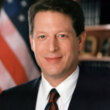Merchants of Doubt: How a Handful of Scientists Obscured the Truth on Issues from Tobacco Smoke to Global Warming
(Libby/OverDrive eBook, Kindle)
Available Platforms
Description
Also in this Series
Published Reviews
Choice Review
The media has frequently aired debates over health and global issues, but the question remains as to how the public is influenced by the arguments advanced by dissenting renowned experts. Science historians Oreskes and Conway explore, dissect, analyze, and reveal, in carefully documented text, the tactics exploited by corporations, politicians, and their science spokespersons to push personal interests and to cloud the issues. Seven chapters examine the clash of scientists and their views on topics including tobacco, the Strategic Defense Initiative and the threat of nuclear winter, acid rain, global warming, the ozone hole, and the historic banning of DDT. Science has long been held as an icon of truth, but through the records collected in this volume, the reader must come to realize that science facts can be perverted for political, economic, and personal designs. Prominent scientists such as Rachel Carson, Robert Jastrow, Frederick Seitz, S. Fred Singer, Carl Sagan, Edward Teller, Gene Likens, William Nierenberg, and many others play roles in heralding their data, opinions, and predictions. This collection of the historical and current manipulation of scientific findings holds a fearful tale--one that is important for a concerned citizenry. Summing Up: Recommended. Upper-division undergraduates and above; general audiences. R. A. Hoots emeritus, Sacramento City College
Publisher's Weekly Review
Oreskes and Conway tell an important story about the misuse of science to mislead the public on matters ranging from the risks of smoking to the reality of global warming. The people the authors accuse in this carefully documented book are themselves scientists-mostly physicists, former cold warriors who now serve a conservative agenda, and vested interests like the tobacco industry. The authors name these scientists-all with powerful connections in government and the media-including Robert Jastrow, Frederick Seitz, and S. Fred Singer. Seven compelling chapters detail seven issues (acid rain, the dangers of smoking and secondhand smoke, the ozone hole, global warming, the Strategic Defense Initiative, and the banning of DDT) in which this group aimed to sow seeds of public doubt on matters of settled science. They did so by casting aspersions on the science and the scientists who produce it. Oreskes, a professor of history and science studies at UC-San Diego, and science writer Conway also emphasize how journalists and Internet bloggers uncritically repeat these charges. This book deserves serious attention for the lessons it provides about the misuse of science for political and commercial ends. (June) (c) Copyright PWxyz, LLC. All rights reserved
Library Journal Review
This book joins a handful whose authors have investigated a powerful propaganda industry. Oreskes (history, Univ. of California-San Diego) and Conway (Atmospheric Science at NASA: A History) have documented the recruitment of some scientists by U.S. tobacco companies to spread disinformation. Funding could be channeled through nonprofit corporations or law firms. Later, some of the same scientists had backing to argue against regulation of sulfur emissions, banning of CFCs, effects of secondhand smoke, and causes of global warming. These calculated attacks on scientific consensus have been abetted by mainstream media, which have often presented the "other side" even when it's discredited. Oreskes and Conway outline how science is supposed to work and how some critical evidence has been drowned out of the U.S. public discourse. VERDICT An important study about science and the media that informed citizens need to read.-David R. Conn, Surrey P.L., B.C. (c) Copyright 2010. Library Journals LLC, a wholly owned subsidiary of Media Source, Inc. No redistribution permitted.
Kirkus Book Review
Two historians of science examine the motives and tactics of scientists who have consistently sowed doubt about issues affecting human well-being and the well-being of the planet. Oreskes (History and Science Studies/Univ. of California, San Diego) and Conway (Atmospheric Science at NASA: A History, 2008, etc.) begin with the tobacco industry's enlisting of scientists to refute studies linking smoking and lung cancer. To explain why Frederick Seitz, a former president of the National Academy of Sciences, joined forces with the tobacco industry in the 1970s, the authors describe him as a communist-hating hawk, a staunch defender of private enterprise and an opponent of government regulations. Other scientists of a similar bentincluding Fred Singer, Robert Jastrow and Bill Nierenbergdefended President Reagan's Strategic Defense Initiative, attacking the claim that it would create a devastating planetary nuclear winter. They also denied the scientific data showing that acid rain was an environmental problem, that the hole in the ozone layer was caused by chlorofluorocarbons and that global warming exists. Behind this spreading of disinformation and doubt, the authors claim, is a network of right-wing think tanks and foundations funded by corporations intent on defending the free market and preventing regulation of private enterprise. Among those cited are the Heartland Institute, the Marshall Institute and the Competitive Enterprise Institute. With dozens of specific examples, the authors demonstrate that casting doubt about scientific evidence has been an effective tactic. Journalists have been complicit in the practice, when, in the name of balanced reporting, they unquestioningly echo doubts. Further, scientists have often been reluctant to publicly refute false claims, perhaps fearing the kind of personal attacks experienced by Carl Sagan and Rachel Carson. A well-documented, pulls-no-punches account of how science works and how political motives can hijack the process by which scientific information is disseminated to the public. Copyright Kirkus Reviews, used with permission.
Library Journal Reviews
This book joins a handful whose authors have investigated a powerful propaganda industry. Oreskes (history, Univ. of California-San Diego) and Conway (Atmospheric Science at NASA: A History) have documented the recruitment of some scientists by U.S. tobacco companies to spread disinformation. Funding could be channeled through nonprofit corporations or law firms. Later, some of the same scientists had backing to argue against regulation of sulfur emissions, banning of CFCs, effects of secondhand smoke, and causes of global warming. These calculated attacks on scientific consensus have been abetted by mainstream media, which have often presented the "other side" even when it's discredited. Oreskes and Conway outline how science is supposed to work and how some critical evidence has been drowned out of the U.S. public discourse. VERDICT An important study about science and the media that informed citizens need to read.—David R. Conn, Surrey P.L., B.C.
[Page 131]. Copyright 2010 Reed Business Information.Publishers Weekly Reviews
Oreskes and Conway tell an important story about the misuse of science to mislead the public on matters ranging from the risks of smoking to the reality of global warming. The people the authors accuse in this carefully documented book are themselves scientists—mostly physicists, former cold warriors who now serve a conservative agenda, and vested interests like the tobacco industry. The authors name these scientists—all with powerful connections in government and the media—including Robert Jastrow, Frederick Seitz, and S. Fred Singer. Seven compelling chapters detail seven issues (acid rain, the dangers of smoking and secondhand smoke, the ozone hole, global warming, the Strategic Defense Initiative, and the banning of DDT) in which this group aimed to sow seeds of public doubt on matters of settled science. They did so by casting aspersions on the science and the scientists who produce it. Oreskes, a professor of history and science studies at UC–San Diego, and science writer Conway also emphasize how journalists and Internet bloggers uncritically repeat these charges. This book deserves serious attention for the lessons it provides about the misuse of science for political and commercial ends. (June)
[Page 97]. Copyright 2010 Reed Business Information.Reviews from GoodReads
Citations
Oreskes, N., & Conway, E. M. (2010). Merchants of Doubt: How a Handful of Scientists Obscured the Truth on Issues from Tobacco Smoke to Global Warming . Bloomsbury Publishing.
Chicago / Turabian - Author Date Citation, 17th Edition (style guide)Oreskes, Naomi and Erik M. Conway. 2010. Merchants of Doubt: How a Handful of Scientists Obscured the Truth On Issues From Tobacco Smoke to Global Warming. Bloomsbury Publishing.
Chicago / Turabian - Humanities (Notes and Bibliography) Citation, 17th Edition (style guide)Oreskes, Naomi and Erik M. Conway. Merchants of Doubt: How a Handful of Scientists Obscured the Truth On Issues From Tobacco Smoke to Global Warming Bloomsbury Publishing, 2010.
Harvard Citation (style guide)Oreskes, N. and Conway, E. M. (2010). Merchants of doubt: how a handful of scientists obscured the truth on issues from tobacco smoke to global warming. Bloomsbury Publishing.
MLA Citation, 9th Edition (style guide)Oreskes, Naomi, and Erik M Conway. Merchants of Doubt: How a Handful of Scientists Obscured the Truth On Issues From Tobacco Smoke to Global Warming Bloomsbury Publishing, 2010.
Copy Details
| Collection | Owned | Available | Number of Holds |
|---|---|---|---|
| Libby | 1 | 0 | 2 |

































